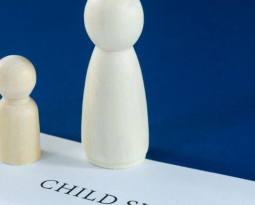Separation and the future of your frozen embryos
The fertility journey is as much an emotional journey as a physical one.
One of the challenges families may not expect to experience when embarking on the journey is having to navigate the fate of frozen embryos upon separation.
This article is intended to inform parties of common scenarios for frozen embryos upon separation and how the Courts have decided in previous cases where there has been a dispute.
Background
The Contract between parties and their fertility clinic is the first point of reference as to how the embryos will be treated upon separation.
Prior to undergoing the procedures to freeze embryos, the fertility clinic will require parties to enter into a Contract.
There will generally be an express provision to the treatment of embryos in the event of separation. Three common scenarios are:
- To destroy the embryos;
- For one party to retain the embryos; or
- To store the embryo for a period of time until a decision is made.
How Does the Court Decide?
Whilst the Family Law Act 1975 (Cth) does not contain any provisions that are specific to embryos, what existing Australian case law has shown is that the Federal Circuit and Family Court of Australia does have jurisdiction when deciding the fate of embryos, and the Court’s decision will ultimately be guided by the Contract.
In the case of G and G [2007] FCWA 80, the embryos in question were created using the genetic material of both parties. A Husband attempted to withdraw his consent for the frozen embryos to be destroyed when he and his Wife separated. Prior to undergoing the process of freezing the embryos, the parties had signed a form which consented to the embryos being destroyed in the event of separation. The Court upheld the Contract and the embryos were destroyed.
In the more recent case of Piccolo & Piccolo [2017] FCWA 167, the embryos were created using genetic material from the Husband and from a donor.
The parties had signed a Contract with their fertility clinic which required the parties to decide on who would have sole ownership of the embryos upon separation. The Husband sought to retain sole ownership of the embryos whereas the Wife had sought they be destroyed. The Court referred to the parties’ Contract and granted the Husband with sole ownership of the frozen embryos. When handing down the decision, the Court noted:
- The Contract required the parties to decide on ownership of the embryos upon separation.
- The Husband sought sole ownership of the embryos whereas the Wife did not.
- The frozen embryos were not genetically connected to the Wife.
Conclusion
It is important to obtain proper legal advice prior to entering into a Contract with your fertility clinic.
Understanding the terms of the Contract with your clinic, and ensuring your intention for the treatment of frozen embryos are reflected in the Contract will provide you with a greater degree of certainty in the event of separation.
If you are contemplating separation, or are separated and are unsure of what should happen to your frozen embryos, it is also important to obtain proper legal advice about your options and how to best resolve your dispute.
To discuss your separation with one of our experienced family lawyers on 07 5609 4933.







